2-Day Solo Adventure Off the Beaten Path in Cayos Cochinos
Cayos Cochinos, Honduras
2 days

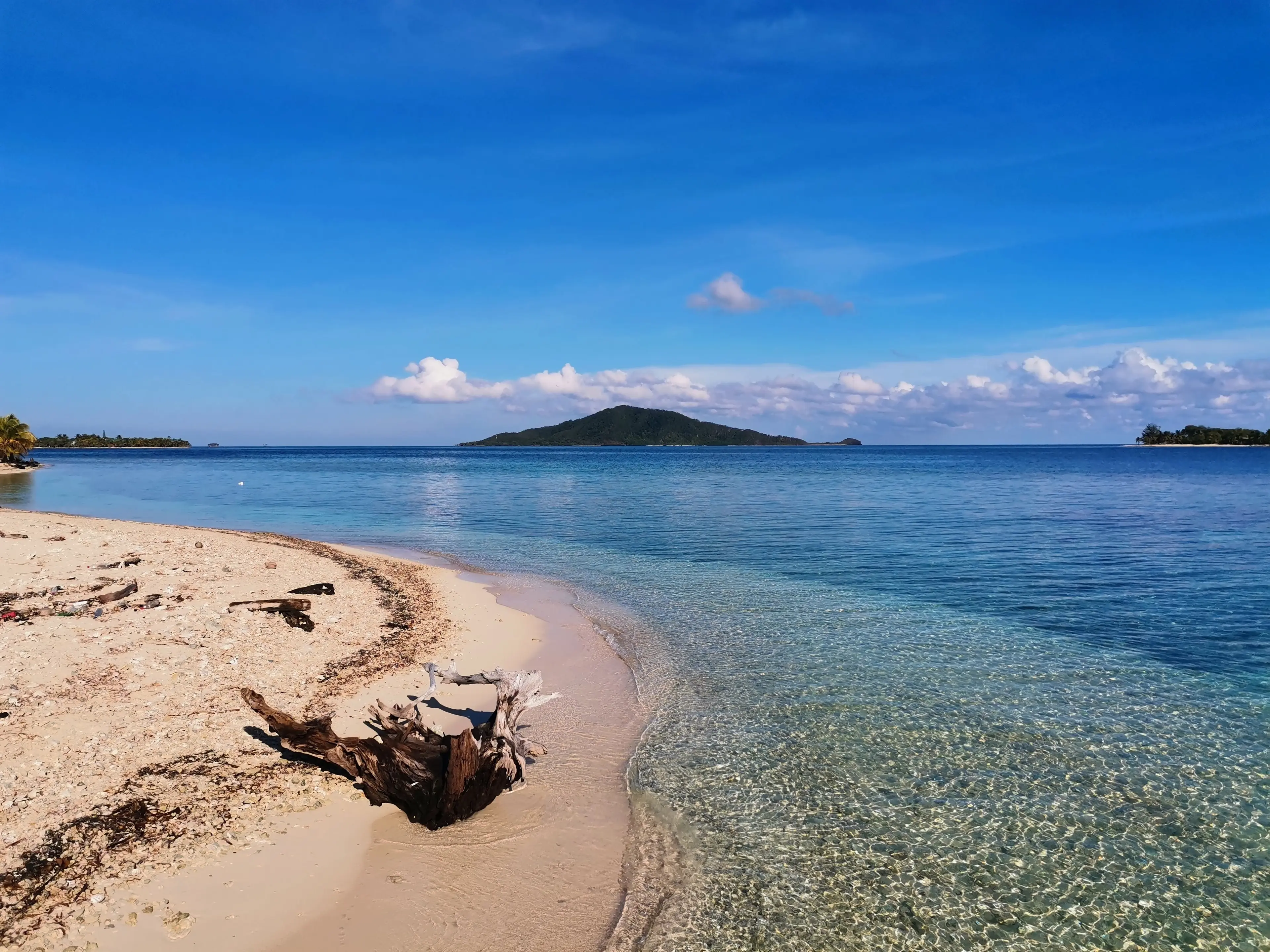
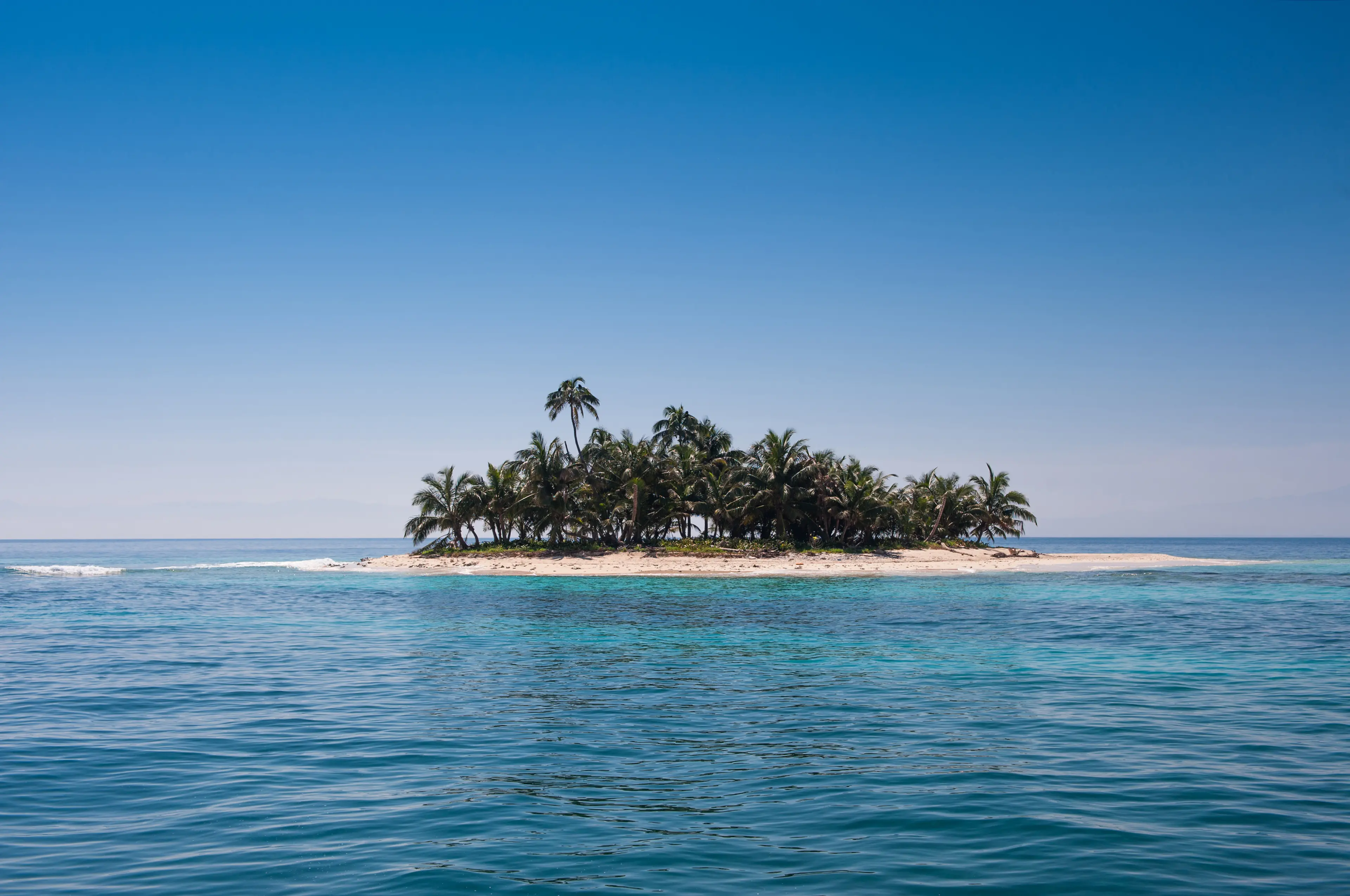


About Cayos Cochinos, Honduras
Explore the untouched beauty of Cayos Cochinos, Honduras, a hidden gem of the Caribbean. This tropical paradise, also known as the Hog Islands, is a Marine Biological Reserve, offering pristine beaches, vibrant coral reefs, and lush forests. Experience the rich Garifuna culture in the local villages, indulge in fresh seafood delicacies, or simply relax on the tranquil beaches. Snorkeling and diving enthusiasts will be captivated by the diverse marine life, including the endangered Hawksbill Turtle. With eco-lodges and private bungalows, accommodation is designed to blend seamlessly with the natural surroundings. Cayos Cochinos is a perfect escape for those seeking tranquility and an authentic island experience.
2-Day Itinerary
Day 2
Cultural Immersion in Chachahuate Cay and Kayaking Adventure
Morning
Start your second day with a Visit to the Garifuna community on Chachahuate Cay. Learn about their culture, traditions, and way of life. Participate in a traditional dance or music session.
Lunch
Have lunch in the Garifuna community. Enjoy a meal of machuca, a traditional Garifuna dish made of mashed plantains and coconut milk, served with fish soup.
Afternoon
Spend your afternoon exploring the smaller cays by kayak. Paddle around the islands, stopping at secluded beaches and hidden coves. Enjoy the tranquility and the stunning natural beauty of the area.
Dinner
Enjoy your last dinner on the island. Try the local lobster, grilled to perfection and served with coconut rice. After dinner, take a leisurely stroll along the beach.
Evening
End your trip with a Bonfire on the beach. Share stories with fellow travelers, roast marshmallows, and enjoy the sound of the waves crashing on the shore.
Attractions in Itinerary (7)
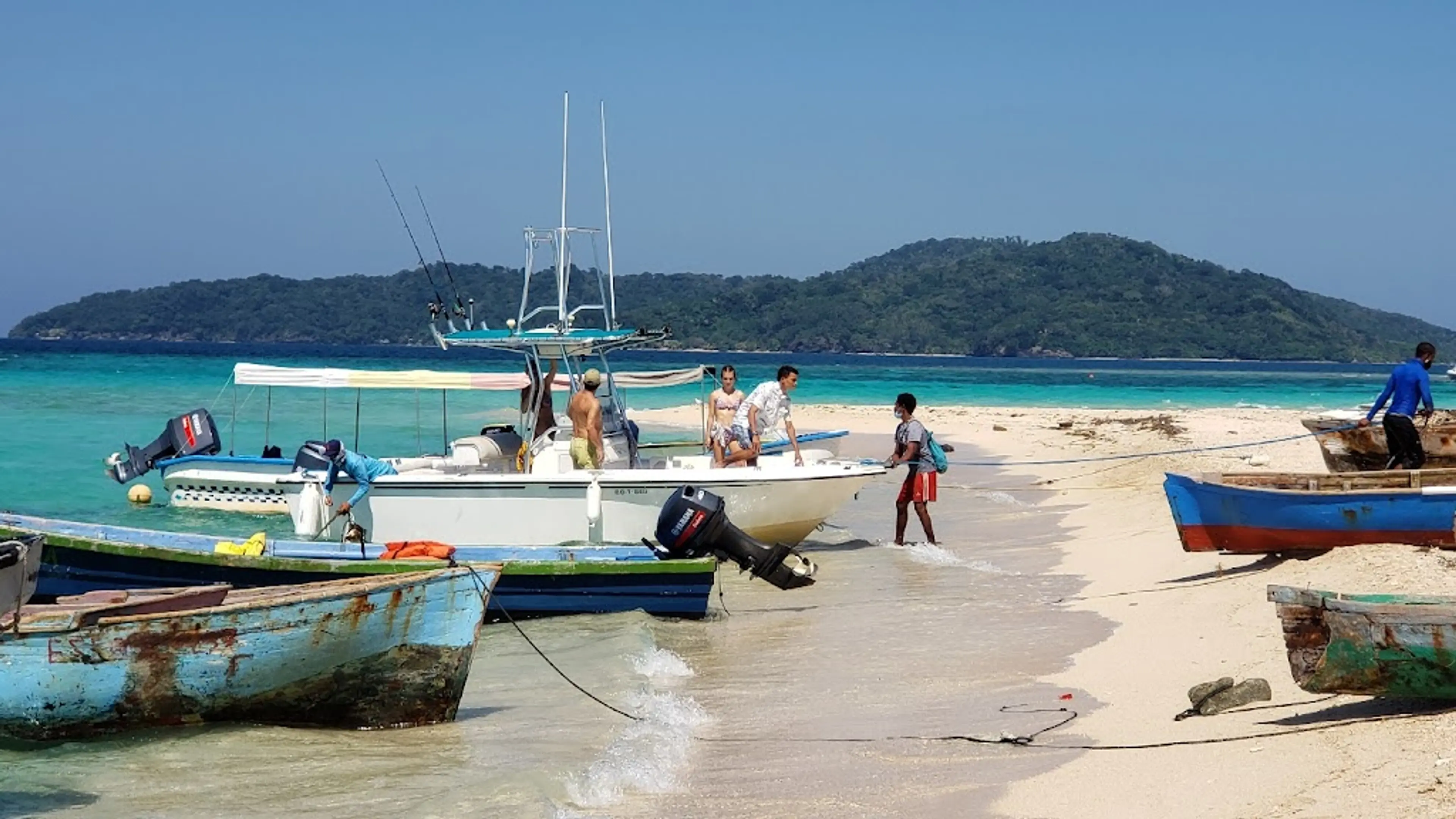
1Boat ride from La Ceiba to Cayos Cochinos
Embark on a scenic boat ride from La Ceiba to Cayos Cochinos. This tour offers a unique opportunity to explore the beautiful waters and experience the local culture.

2Marine Biological Reserve
A protected area that houses a rich variety of marine life, including coral reefs, sea turtles, and numerous species of fish.
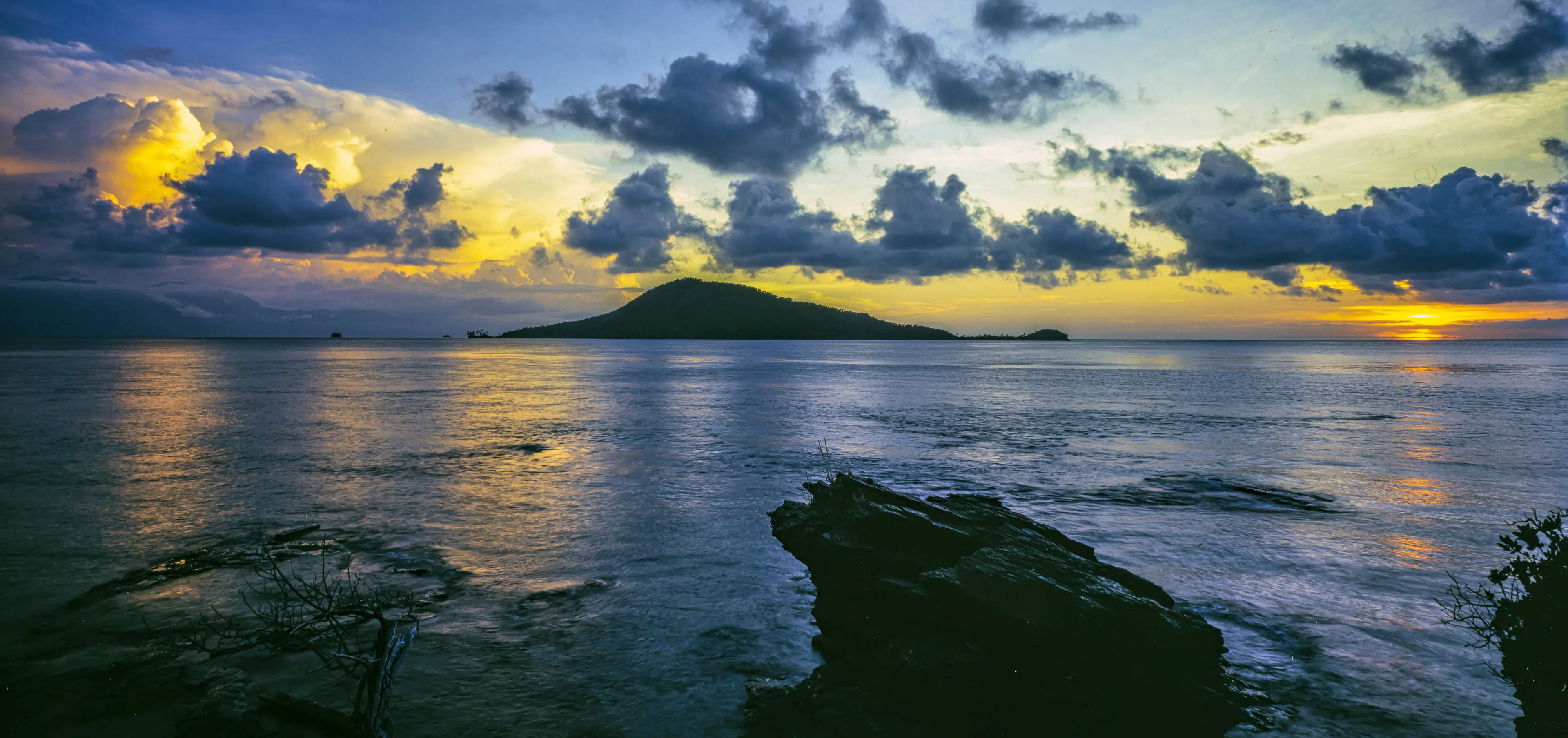
3Night hike through the tropical forest
Experience the unique thrill of a night hike through the tropical forest in Cayos Cochinos. This tour offers a chance to see the forest's nocturnal wildlife.
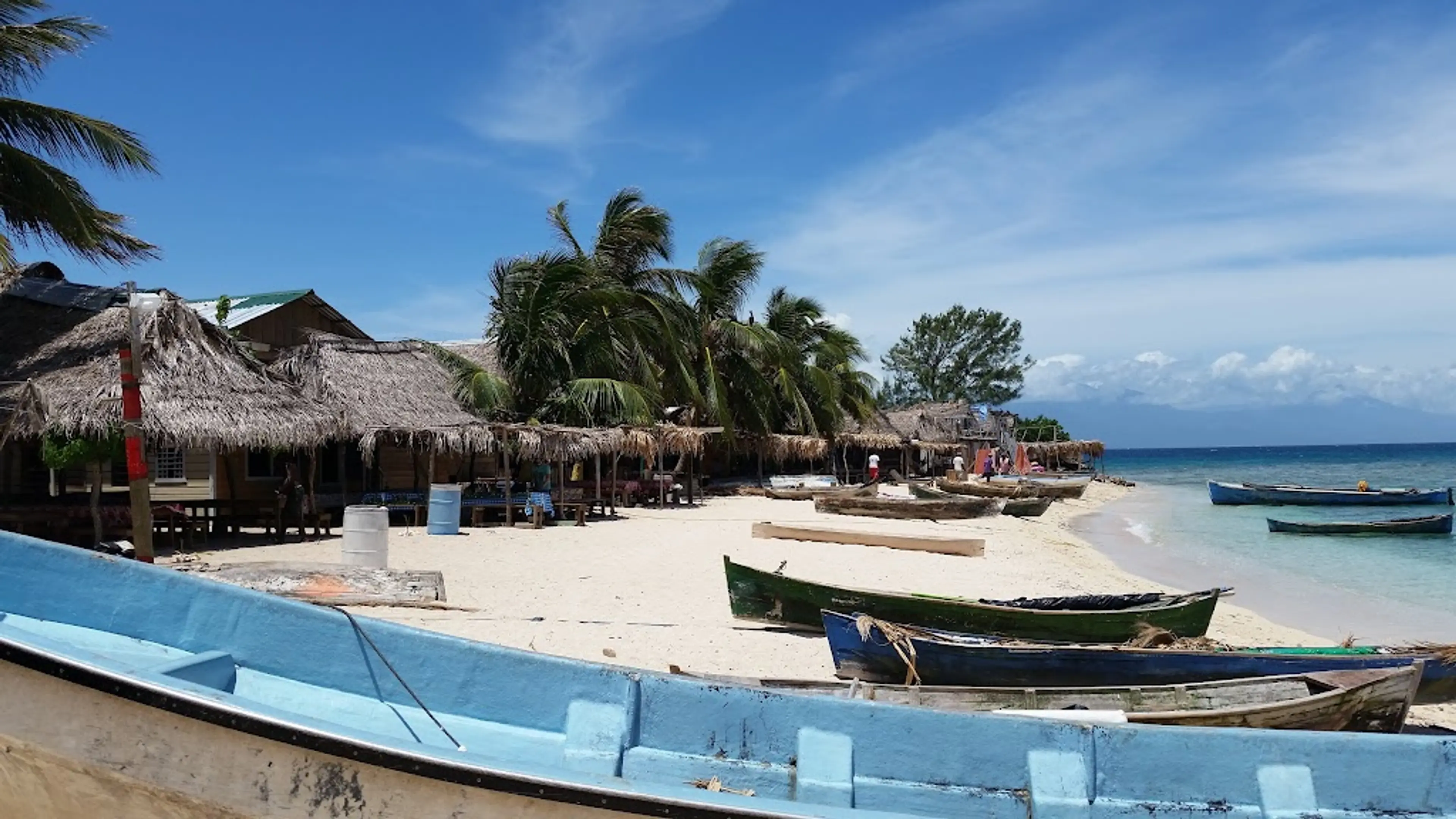
4Visit to the Garifuna community on Chachahuate Cay
Experience the rich culture of the Garifuna community on Chachahuate Cay. This tour offers a unique insight into their traditions and lifestyle.
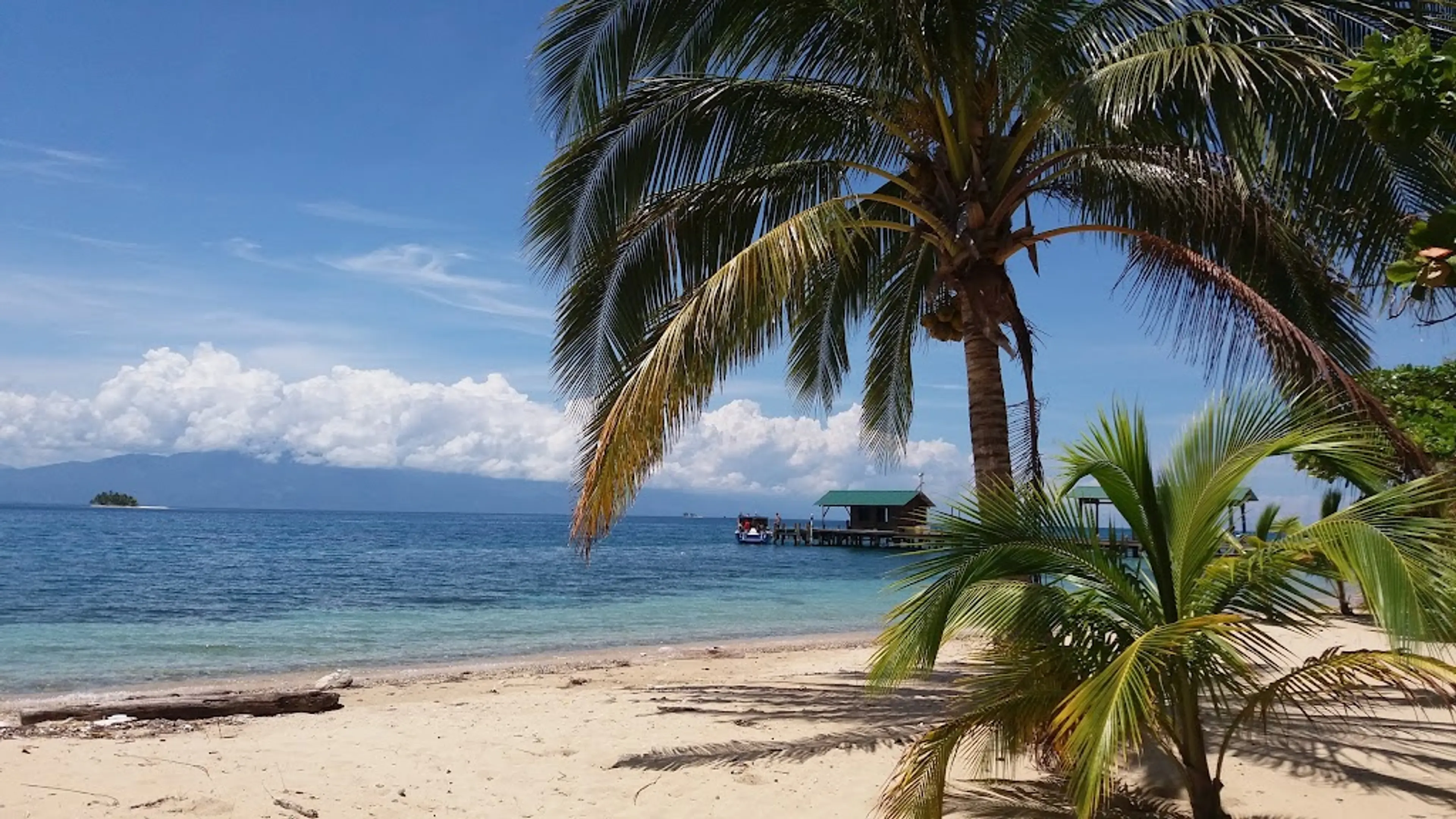
5Bonfire on the beach
Enjoy a traditional bonfire on the beach in Cayos Cochinos. This experience offers a chance to relax and enjoy the local culture.
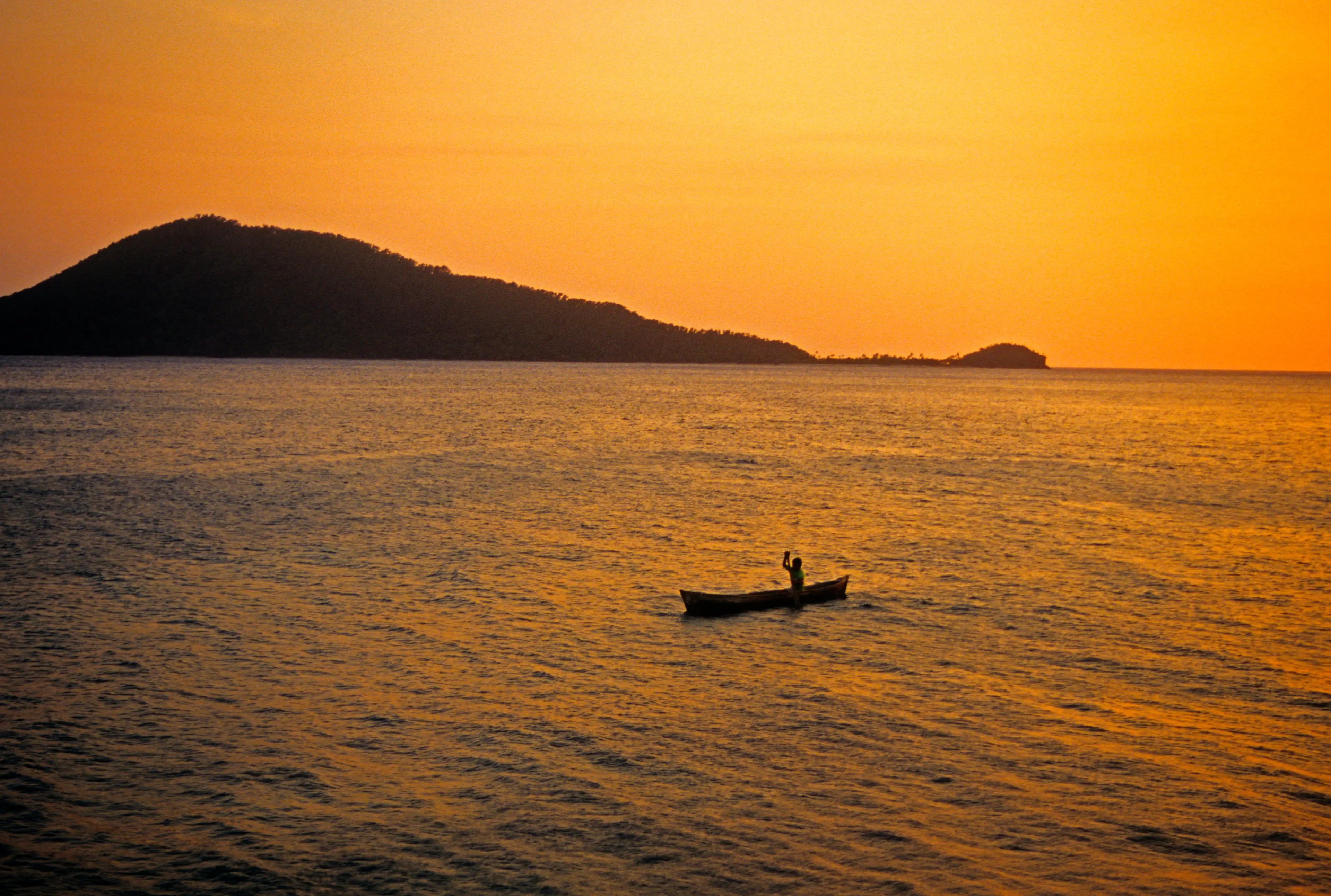
6Kayaking around the smaller cays
Embark on a kayaking tour around the smaller cays of Cayos Cochinos. This tour offers a unique way to explore the area's natural beauty.
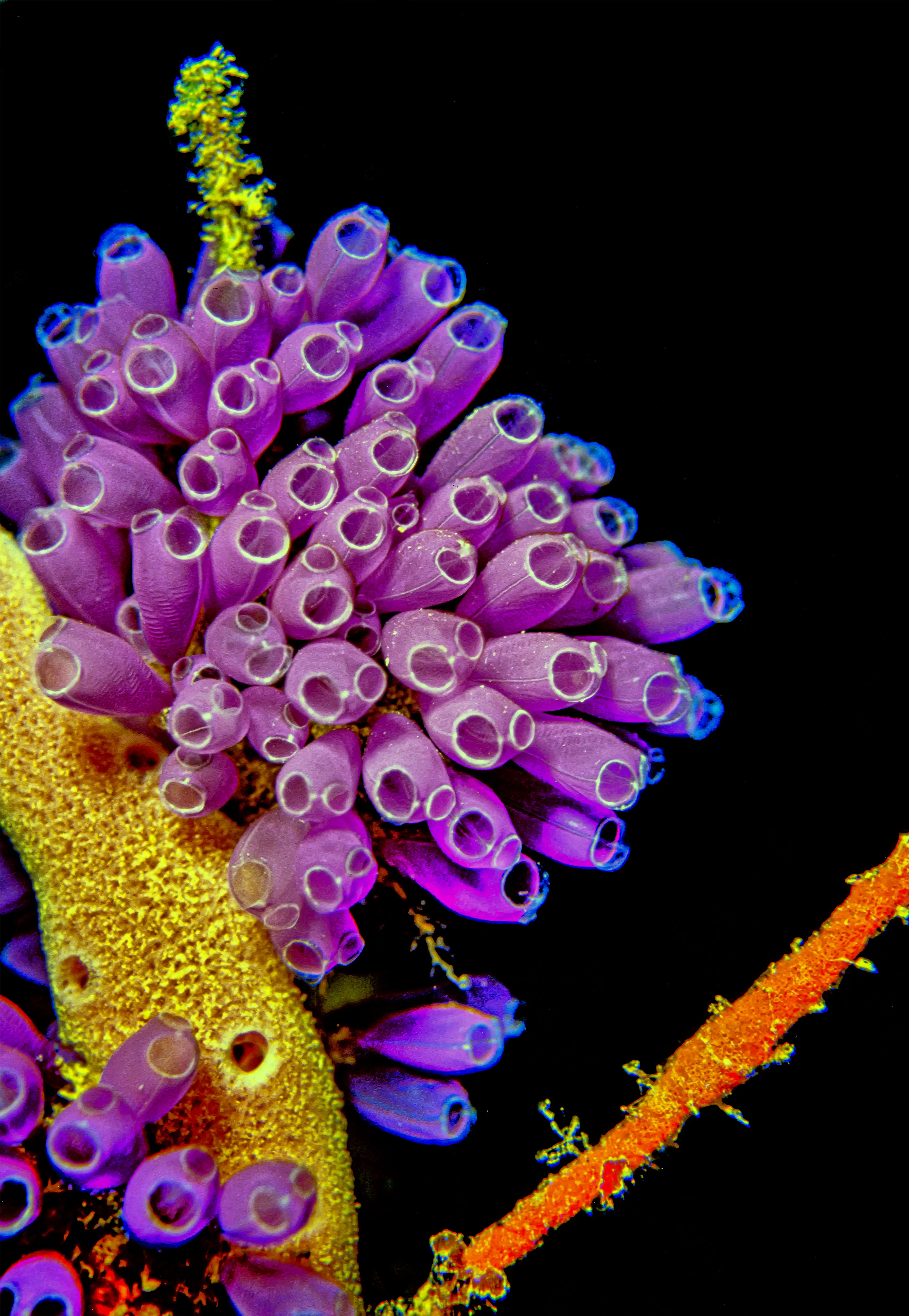
7Snorkeling in the Caribbean Sea
Experience the vibrant underwater world of the Caribbean Sea with a snorkeling tour. This activity is a must-do for nature and adventure lovers.
Local Food and Drinks (12)

Baleadas
A traditional Honduran dish, Baleadas are thick flour tortillas filled with refried beans, cheese, and cream. They are a popular breakfast food in Cayos Cochinos.

Pupusas
Originating from El Salvador but popular in Honduras, Pupusas are corn tortillas filled with cheese, beans, or meat. They are often served with a spicy cabbage slaw called curtido.

Pastelitos de Carne
These are small, fried meat pies that are a popular snack in Cayos Cochinos. They are typically filled with beef or chicken and served with a side of pickled onions.
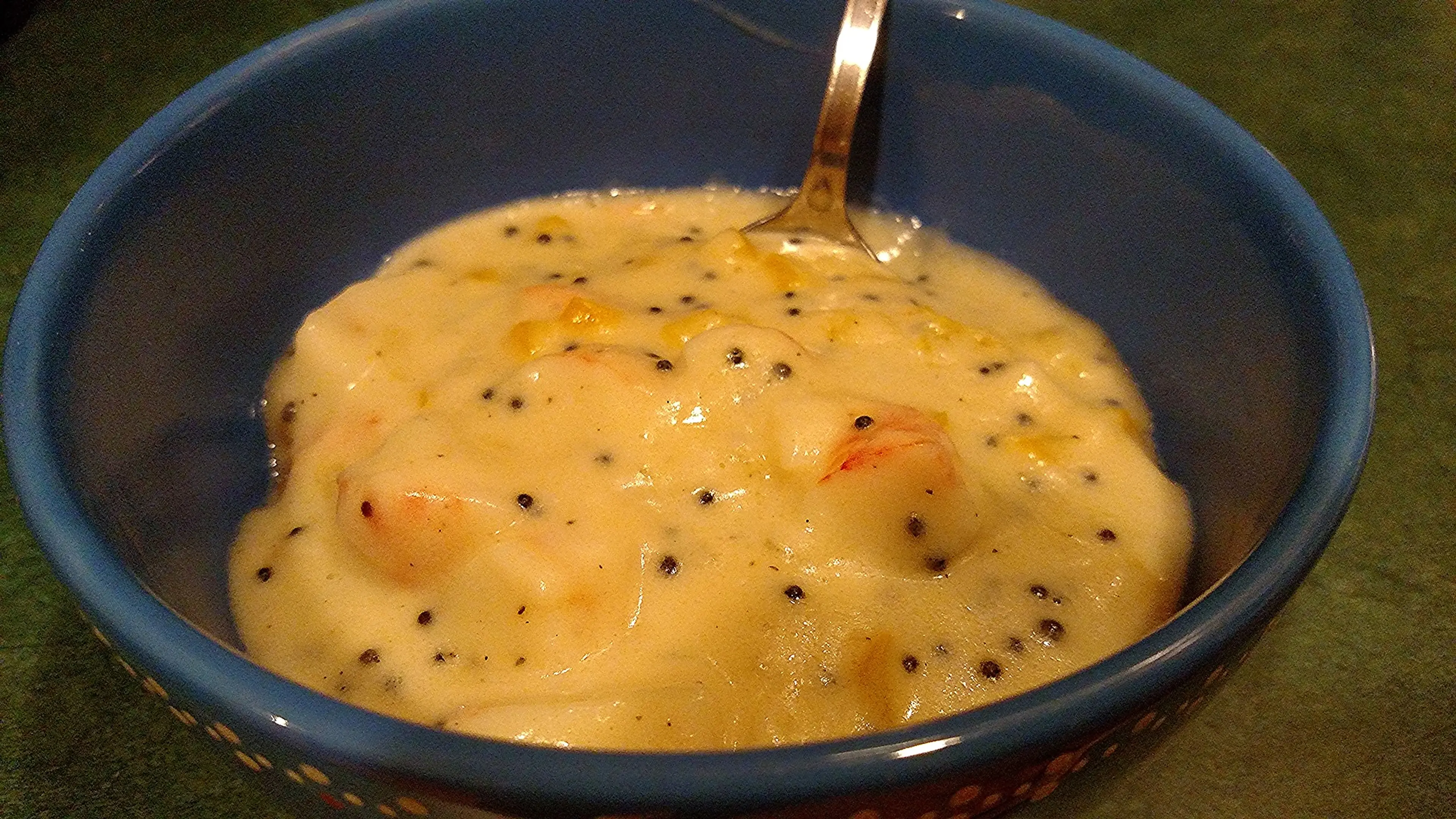
Sopa de Caracol
A traditional Honduran soup made with conch, vegetables, coconut milk, and spices. It's a must-try dish when visiting Cayos Cochinos.
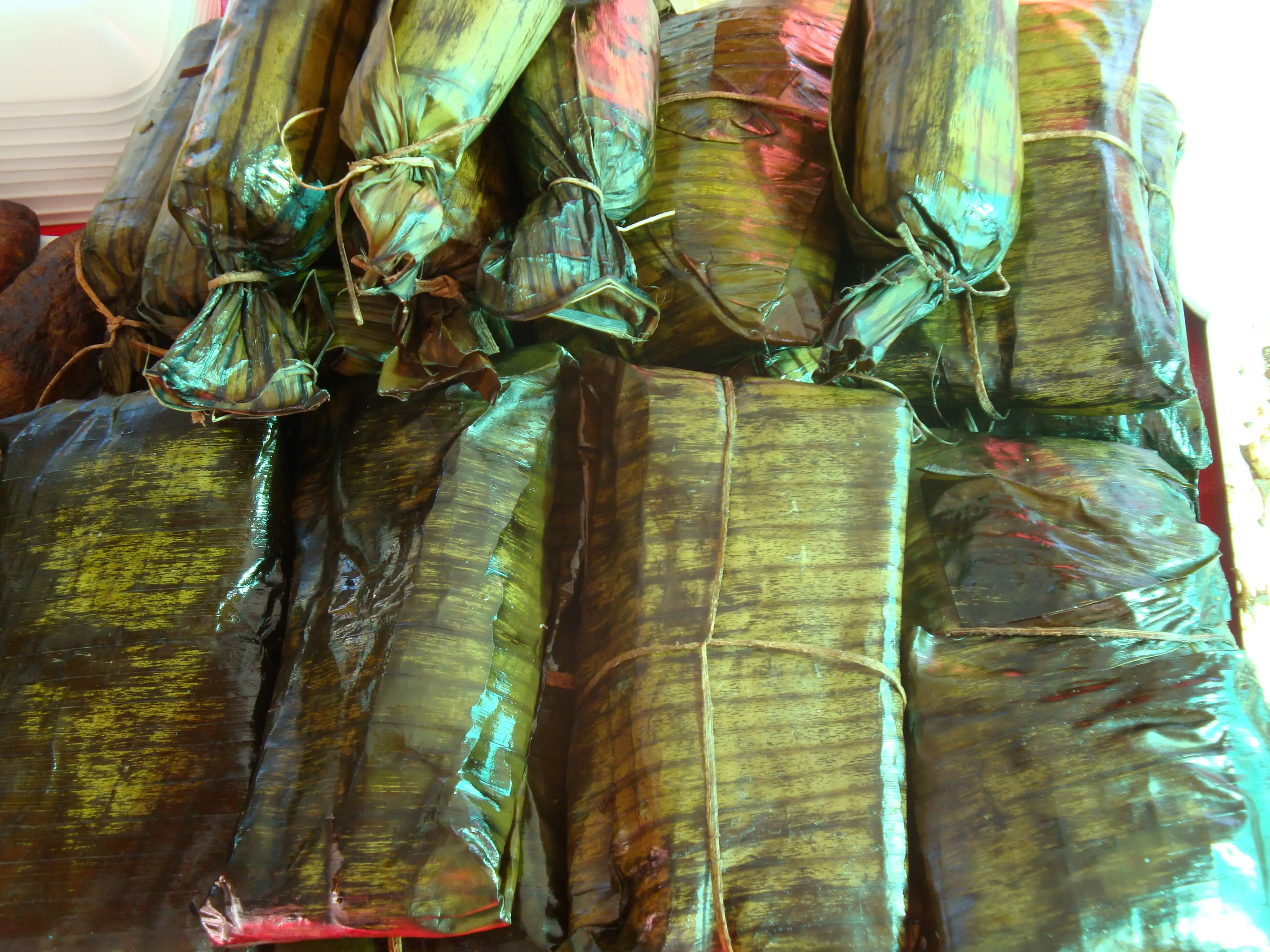
Tamales
Tamales are a traditional Mesoamerican dish made of masa (a dough made from corn) that's filled with meats, cheeses, fruits, or other ingredients, wrapped in a corn husk, and steamed.
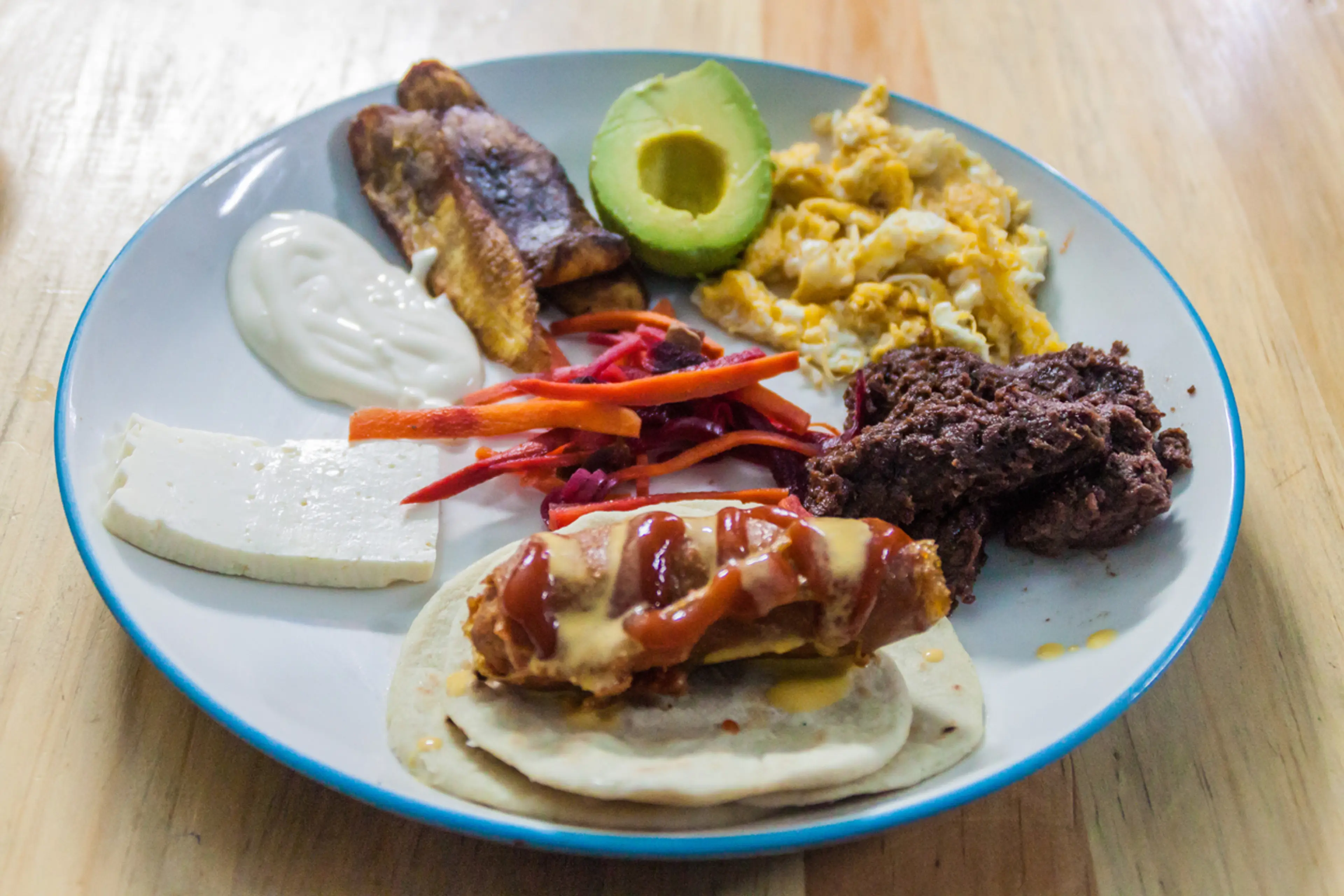
Plato Típico
A typical Honduran meal that usually includes grilled meat, fried plantains, beans, cheese, and tortillas. It's a staple dish in Cayos Cochinos.

Chicharrones
Chicharrones are fried pork rinds. They are a popular snack in Cayos Cochinos and are often served with lime and hot sauce.
Chilate con Nuegados
A traditional Honduran dessert, Chilate con Nuegados are balls of yucca dough that are fried and then soaked in a sweet syrup. They are served with a hot drink called Chilate.
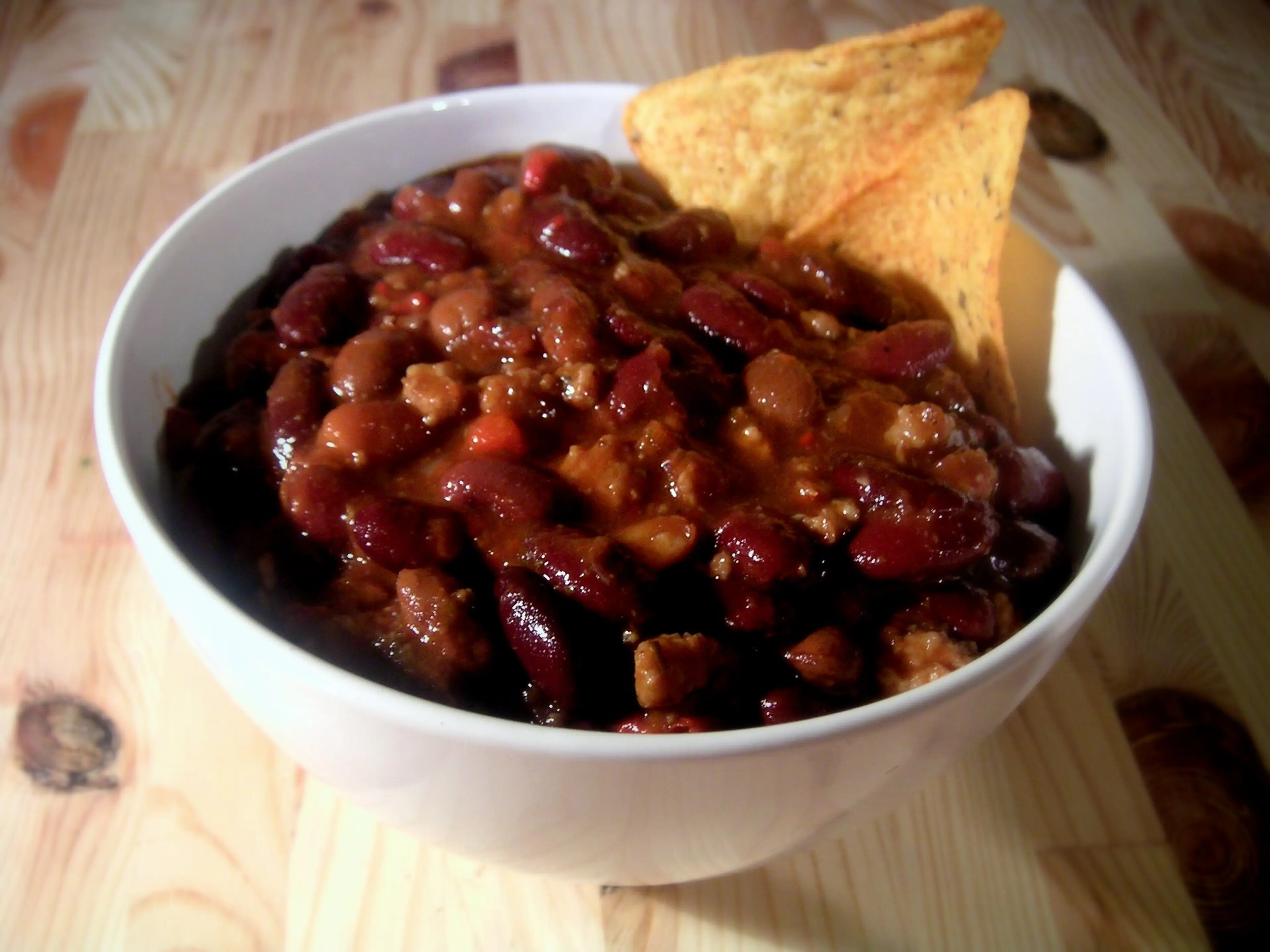
Anafres
A traditional Honduran appetizer, Anafres is a hot dip made with refried beans and cheese, served in a clay pot with tortilla chips.
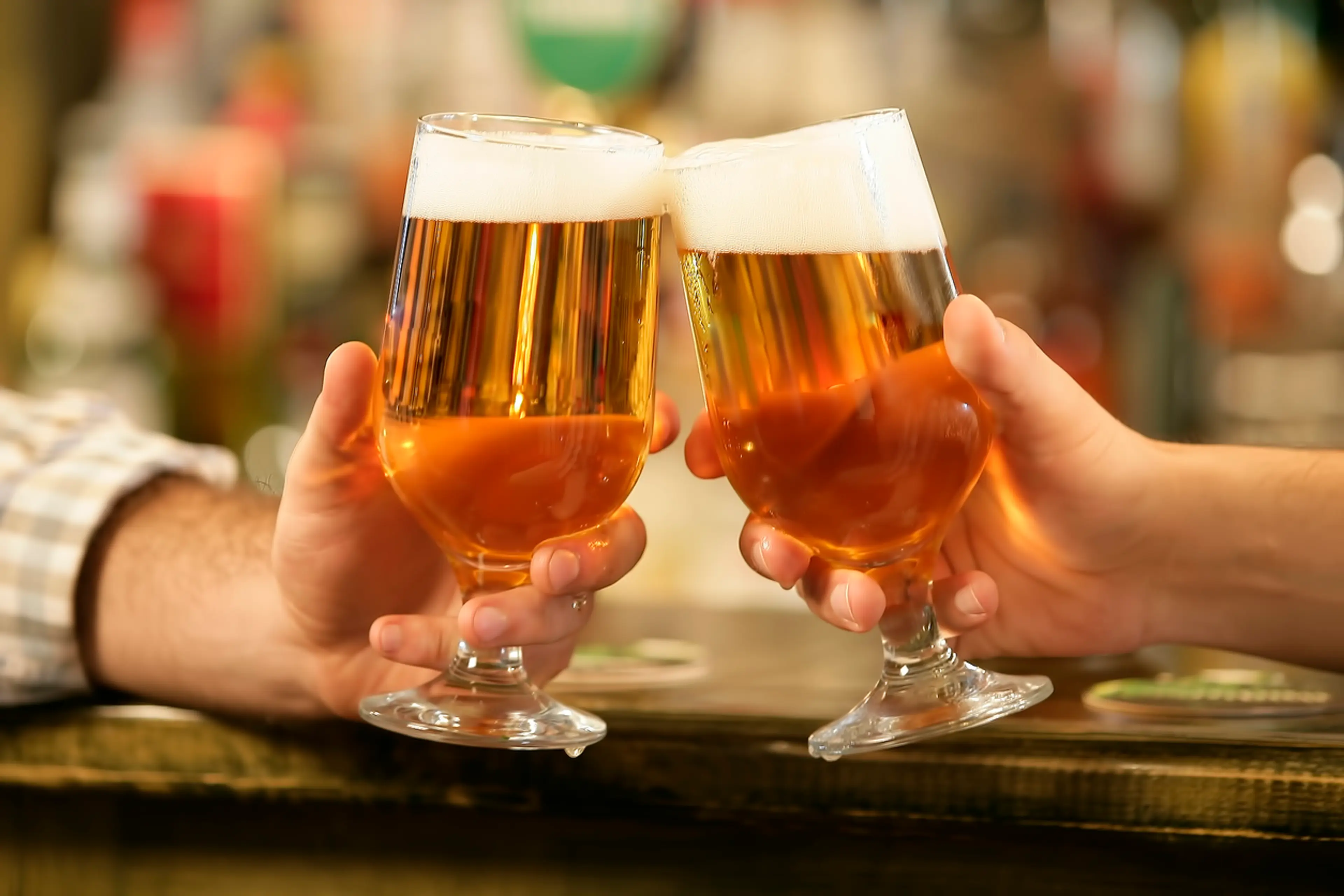
Salva Vida
Salva Vida is a popular Honduran beer. It's a light, crisp lager that's perfect for enjoying on the beaches of Cayos Cochinos.
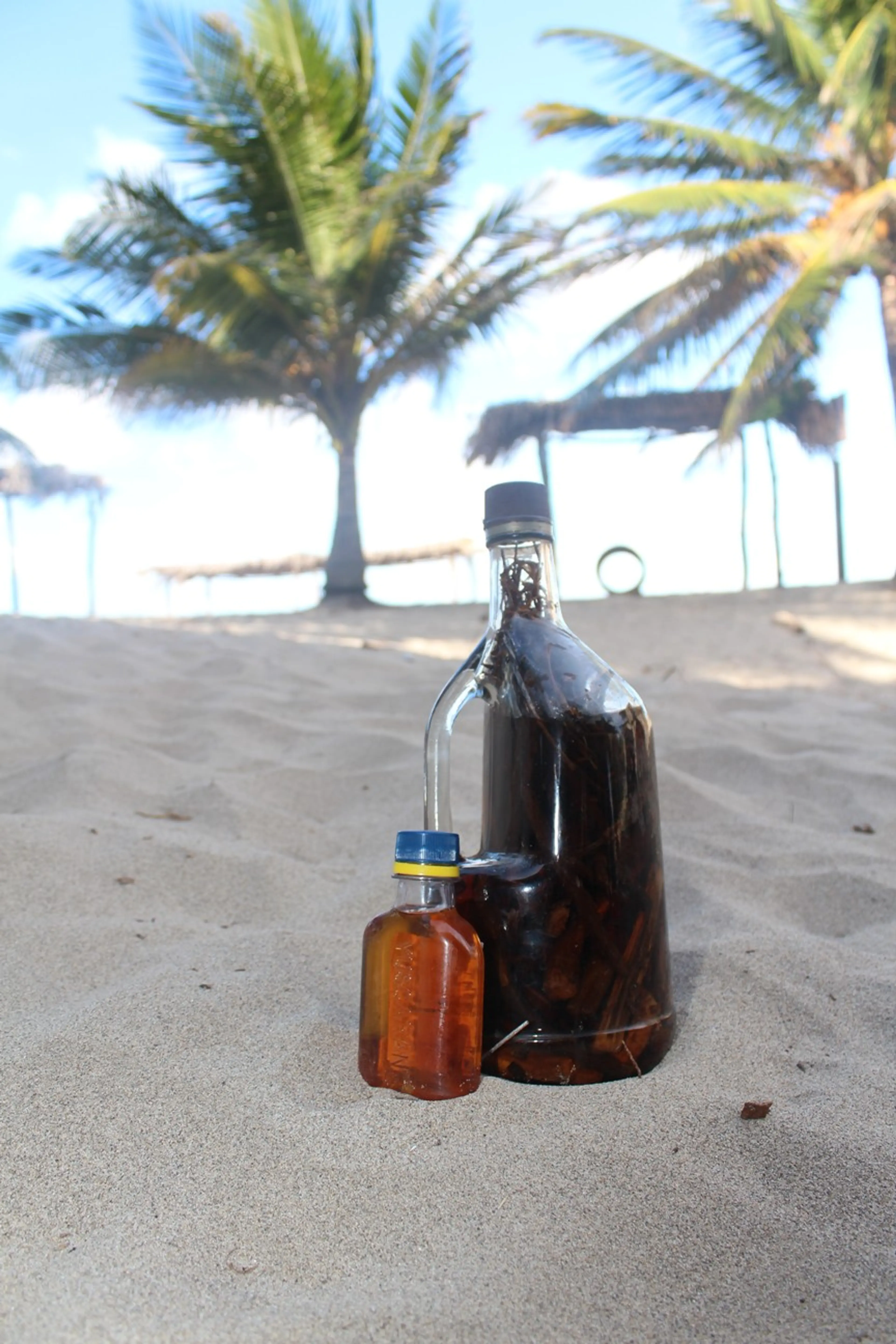
Guifiti
A traditional Garifuna drink made from rum infused with various herbs and roots. It's often considered a medicinal drink in Cayos Cochinos.
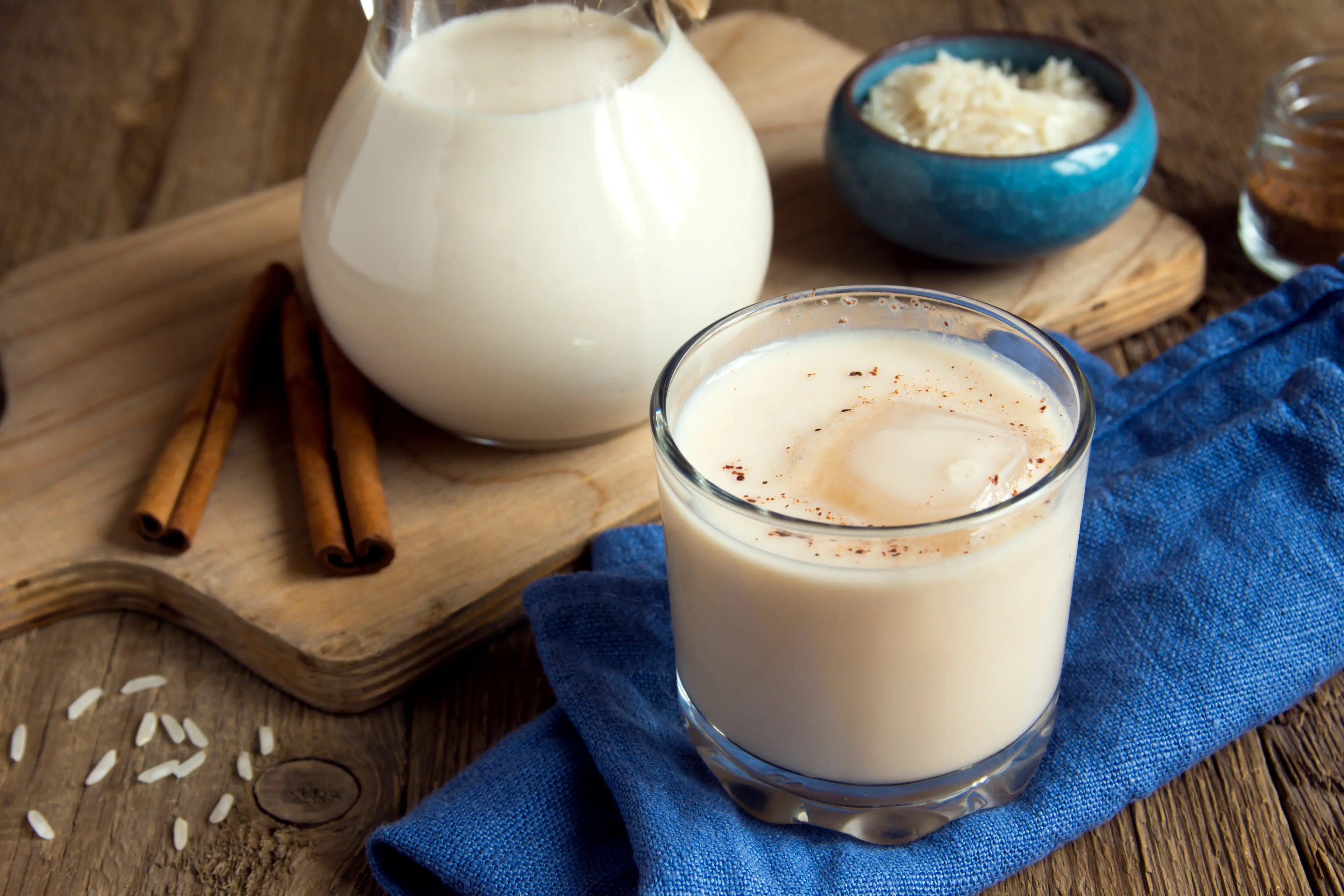
Horchata
A traditional Latin American drink made from rice, milk, vanilla, and cinnamon. In Honduras, it's often made with jicaro seeds instead of rice.
Best time to visit
The best time to visit Cayos Cochinos, Honduras is during the dry season, which typically runs from December to April. During these months, you can expect less rainfall and more sunshine, making it an ideal time for outdoor activities like snorkeling, hiking, and exploring the beautiful coral reefs. The temperatures during this period are also quite comfortable, usually ranging between 70°F to 80°F (21°C to 27°C). However, it's always a good idea to check the weather forecast before your trip as weather can sometimes be unpredictable.
How to get around
Boat
The primary method of transportation to and around Cayos Cochinos is by boat. There are no roads on the islands, so boat travel is essential for getting from one place to another. Boats can be hired from the mainland or from local operators on the islands.
Foot
Once on the islands, the main mode of transportation is by foot. There are several trails that lead to various points of interest, including beaches, viewpoints, and the small villages that are scattered across the islands.
Water Taxi
Water taxis are another common method of transportation around Cayos Cochinos. These small boats operate on a regular schedule and can take you to different parts of the islands.
Private Charter Boat
For a more personalized experience, you can hire a private charter boat. This allows you to explore the islands at your own pace and visit less crowded areas.
Kayak
Kayaking is a popular activity in Cayos Cochinos and can also be used as a means of transportation. It's a great way to explore the coastline and visit secluded beaches.
Snorkeling and Diving
While not a traditional method of transportation, snorkeling and diving are popular ways to explore the underwater world of Cayos Cochinos. Equipment can be rented from local operators.
Ridesharing
Ridesharing services are not available in Cayos Cochinos due to the lack of roads and the small size of the islands.
Important information
CurrencyL HNL
Time zoneUTC-6
Driving sideRight
Emergency phoneAmbulance: 195, 37, 8654; Fire: 198; Police: 119
Drinking waterOpt for bottled water
Power sockets
Voltage120 V
Things to know about Cayos Cochinos, Honduras as a first time visitor
1
Cayos Cochinos is a group of two small islands (Cayo Menor and Cayo Grande) and 13 more tiny coral cays.
2
The official language is Spanish, but English is widely spoken in tourist areas.
3
The local currency is the Honduran Lempira (HNL), but US dollars are widely accepted.
4
Credit cards are accepted in most places, but it's a good idea to carry some cash for smaller vendors or in case of emergencies.
5
The islands are part of the Mesoamerican Barrier Reef System, the second-largest coral reef system in the world.
6
The islands are a Marine Protected Area, so fishing, touching the coral, or disturbing the wildlife is strictly prohibited.
7
Cayos Cochinos is a no-vehicle zone, so the main mode of transportation is by foot or boat.
8
The islands are home to the Garifuna people, an Afro-Caribbean group recognized by UNESCO for their cultural heritage.
9
The climate is tropical, with temperatures averaging 80°F (27°C) year-round.
10
The rainy season is from May to November, with the heaviest rainfall usually in September and October.
11
There are no ATMs on the islands, so it's advisable to withdraw enough cash before your visit.
12
Tap water is not safe to drink, so it's recommended to drink bottled water.
13
There are no hospitals on the islands. The nearest medical facilities are in La Ceiba on the mainland.
14
The islands are generally safe, but it's always wise to take standard travel precautions, such as not leaving valuables unattended.
15
There's no public electricity grid on the islands. Most places use solar power and generators, so power can be limited.
16
Internet access is limited and often unreliable. It's a good place to disconnect and enjoy nature.
17
The islands are a popular spot for snorkeling and diving, thanks to the clear waters and abundant marine life.
18
The islands are home to the rare pink boa, a species of snake that's not found anywhere else in the world.
19
There are no supermarkets on the islands. Most food and supplies are brought in from the mainland.
20
The islands are a part of the Bay Islands Department of Honduras, which also includes Roatán and Utila.
Basic Spanish to know as a first time visitor
English phrase | Native phrase | Pronunciation | When to use it |
|---|---|---|---|
Hello | Hola | O-la | Greeting someone |
Goodbye | Adiós | A-dee-os | Leaving or saying goodbye to someone |
Please | Por favor | Por fa-vor | When asking for something |
Thank you | Gracias | Gra-see-as | After receiving something or someone's help |
Yes | Sí | See | Agreeing with someone or something |
No | No | No | Disagreeing with someone or something |
Excuse me | Perdón | Per-don | Getting someone's attention or apologizing |
I'm sorry | Lo siento | Lo see-en-to | Apologizing |
Do you speak English? | ¿Hablas inglés? | Ab-las in-gles | When you need to communicate in English |
I don't understand | No entiendo | No en-tee-en-do | When you don't understand what is being said |
Where is...? | ¿Dónde está...? | Don-de es-ta | When you are looking for a place or thing |
Bathroom | Baño | Ban-yo | When you need to use the restroom |
Help | Ayuda | A-yu-da | In case of emergency |
Food | Comida | Co-mi-da | When you're looking for something to eat |
Water | Agua | A-gua | When you're thirsty and need water |
Good morning | Buenos días | Bwe-nos dee-as | Greeting someone in the morning |
Good afternoon | Buenas tardes | Bwe-nas tar-des | Greeting someone in the afternoon |
Good evening | Buenas noches | Bwe-nas no-ches | Greeting someone in the evening or night |
How much does it cost? | ¿Cuánto cuesta? | Kwan-to kwes-ta | When you want to know the price of something |
I need a doctor | Necesito un médico | Ne-ce-si-to un me-di-co | In case of medical emergency |
Packing List
Clothing
Lightweight clothing
Swimwear
Beach cover-up
Underwear
Socks
Flip flops or sandals
Sneakers
Hat or cap
Sunglasses
Light jacket or sweater
Toiletries
Toothbrush and toothpaste
Deodorant
Shampoo and conditioner
Body wash or soap
Razor and shaving cream
Sunscreen
Insect repellent
First aid kit
Prescription medications
Travel-size laundry detergent
Travel documents and essentials
Passport
Driver's license or ID
Credit and debit cards
Cash and coins
Travel insurance documents
Hotel and transportation reservation confirmations
Emergency contacts and important addresses
Electronics and gadgets
Smartphone
Charger and power bank
Headphones
Camera
Memory cards
Travel adapter
Miscellaneous items
Snacks
Water bottle
Travel pillow and blanket
Books or e-reader
Travel guide and map
Notebook and pen
Reusable shopping bag
Beach towel
Snorkeling gear
Weather Conditions
When planning a trip to Cayos Cochinos, Honduras, it's important to consider the tropical climate of the region. The weather is typically warm throughout the year, with average temperatures ranging from 70°F to 90°F (21°C to 32°C). However, the humidity can make it feel hotter, so lightweight, breathable clothing is recommended. The region experiences two main seasons: the dry season and the rainy season. The dry season, from February to September, is the best time to visit if you want to avoid heavy rainfall. However, even during the dry season, brief showers can occur, so it's always a good idea to carry a light rain jacket or umbrella. The rainy season, from October to January, can bring heavy rainfall and occasional storms. If you're planning to visit during this time, be prepared for potential changes in your itinerary due to weather conditions. Waterproof gear and shoes are a must. Regardless of when you visit, it's important to stay hydrated and protect yourself from the sun. The sun's rays can be quite strong, especially between 10 am and 2 pm. Always wear a hat, sunglasses, and sunscreen with a high SPF. Lastly, keep an eye on the weather forecast during your trip. Weather conditions can change quickly in tropical regions, and being prepared will ensure you have a safe and enjoyable trip to Cayos Cochinos.
| Month | Hi / Lo (°C) | Weather Overview |
|---|---|---|
January | 32° / 22° | January is the coolest month in Cayos Cochinos, with temperatures ranging from 22°C to 32°C. It's a great time to visit if you prefer milder weather. |
February | 32° / 22° | February continues the cool trend with temperatures similar to January. It's also the driest month, making it perfect for outdoor activities. |
March | 33° / 23° | March sees a slight increase in temperature, ranging from 23°C to 33°C. The weather remains dry, offering excellent conditions for snorkeling and diving. |
April | 34° / 24° | April is the start of the warmer months in Cayos Cochinos, with temperatures reaching up to 34°C. It's a great time to enjoy the beautiful beaches. |
May | 35° / 25° | May is the start of the rainy season, but temperatures remain high, ranging from 25°C to 35°C. Despite the rain, the island's beauty remains undiminished. |
June | 35° / 25° | June continues the rainy season, with temperatures similar to May. However, the rain brings a unique freshness to the island's flora and fauna. |
July | 35° / 25° | July is in the middle of the rainy season, with temperatures ranging from 25°C to 35°C. It's a great time to visit if you enjoy the tropical rainforest environment. |
August | 35° / 25° | August sees the continuation of the rainy season. Despite the rain, the temperatures remain warm, making it a unique time to experience the island's biodiversity. |
September | 35° / 25° | September is the peak of the rainy season, with temperatures similar to the previous months. It's an excellent time for indoor activities and exploring the local culture. |
October | 34° / 24° | October sees a decrease in temperature and the end of the rainy season. The weather becomes more comfortable, making it a great time to explore the island. |
November | 33° / 23° | November marks the start of the cooler months, with temperatures ranging from 23°C to 33°C. It's a great time to visit for those who prefer milder weather. |
December | 32° / 22° | December is one of the coolest months, with temperatures similar to January. It's a perfect time to visit for a warm winter getaway. |
Did you know?
Places near by Cayos Cochinos, Honduras

Roatan
A beautiful island known for its stunning beaches, scuba diving, and marine life.

La Ceiba
A lively port city known for its vibrant nightlife, beaches, and natural attractions like Pico Bonito National Park.

Utila
A small island famous for its affordable scuba diving, beautiful beaches, and wildlife.

Tela
A town known for its beautiful beaches, Garifuna culture, and Punta Izopo National Park.

San Pedro Sula
The second largest city in Honduras, known for its museums, parks, and shopping.

Guatemala City
The capital of Guatemala, known for its Mayan history, architecture, and vibrant culture.

Managua
The capital of Nicaragua, known for its colonial architecture, historical sites, and Lake Managua.

